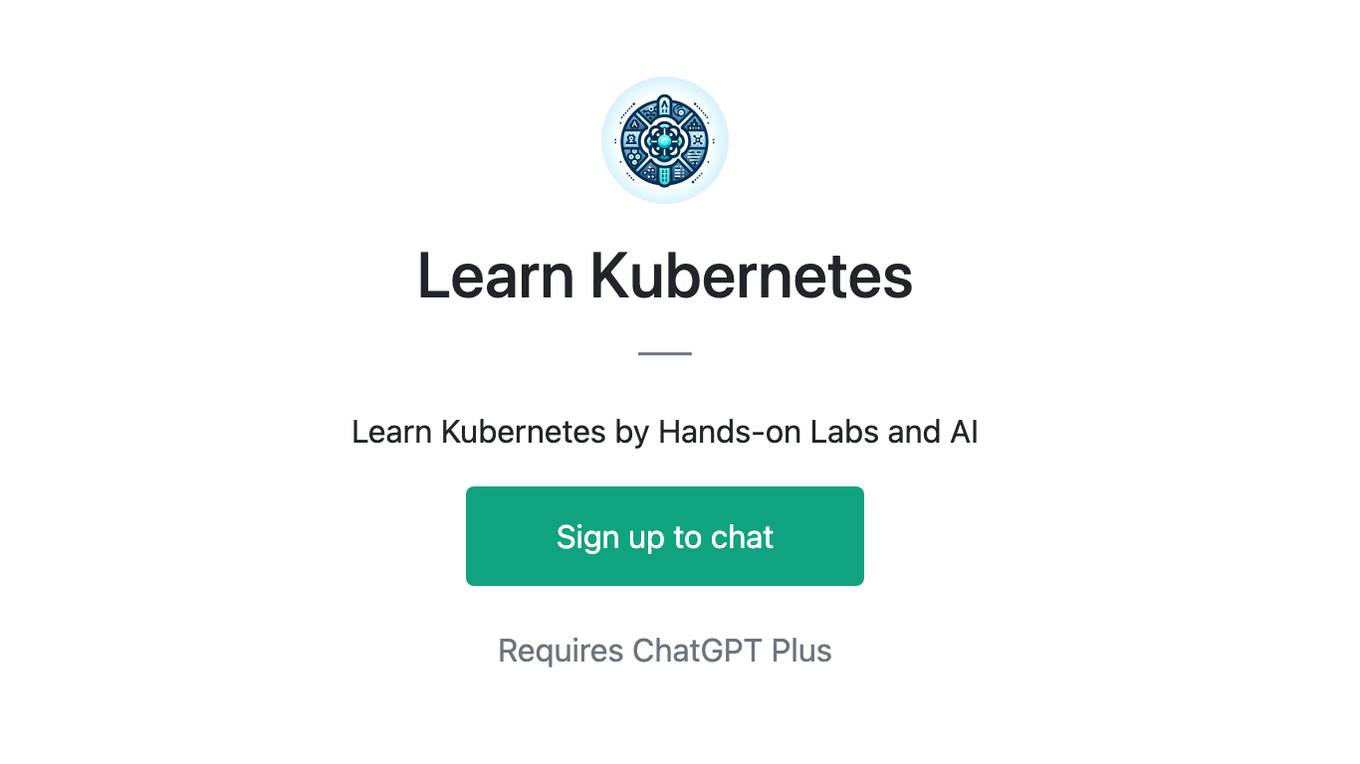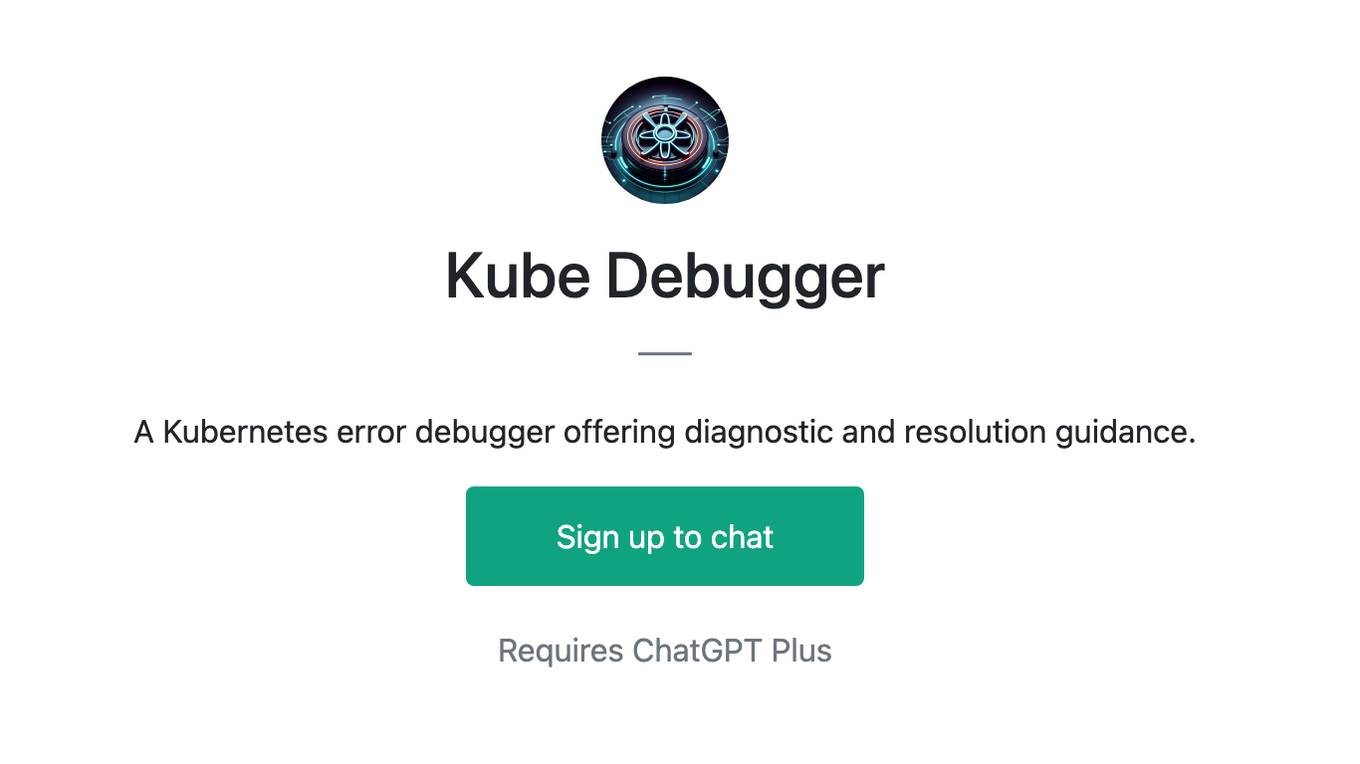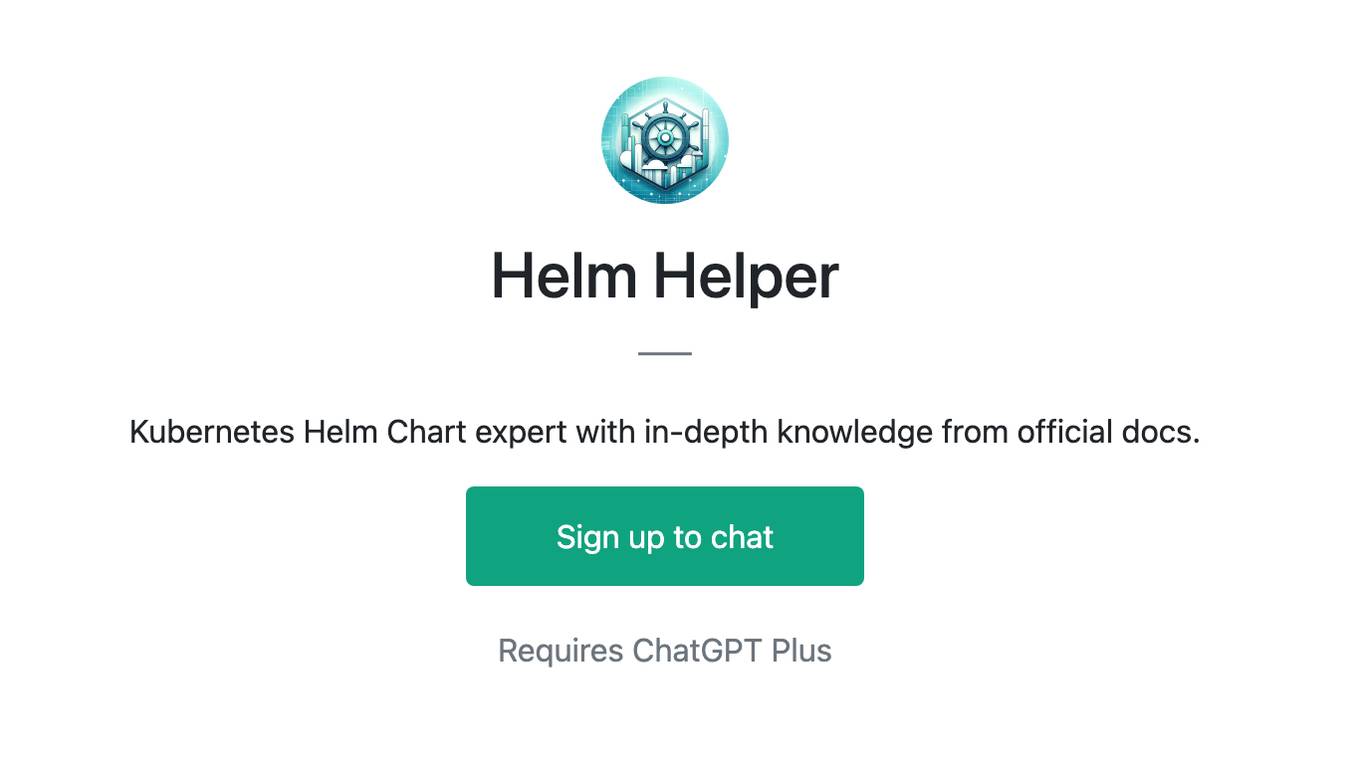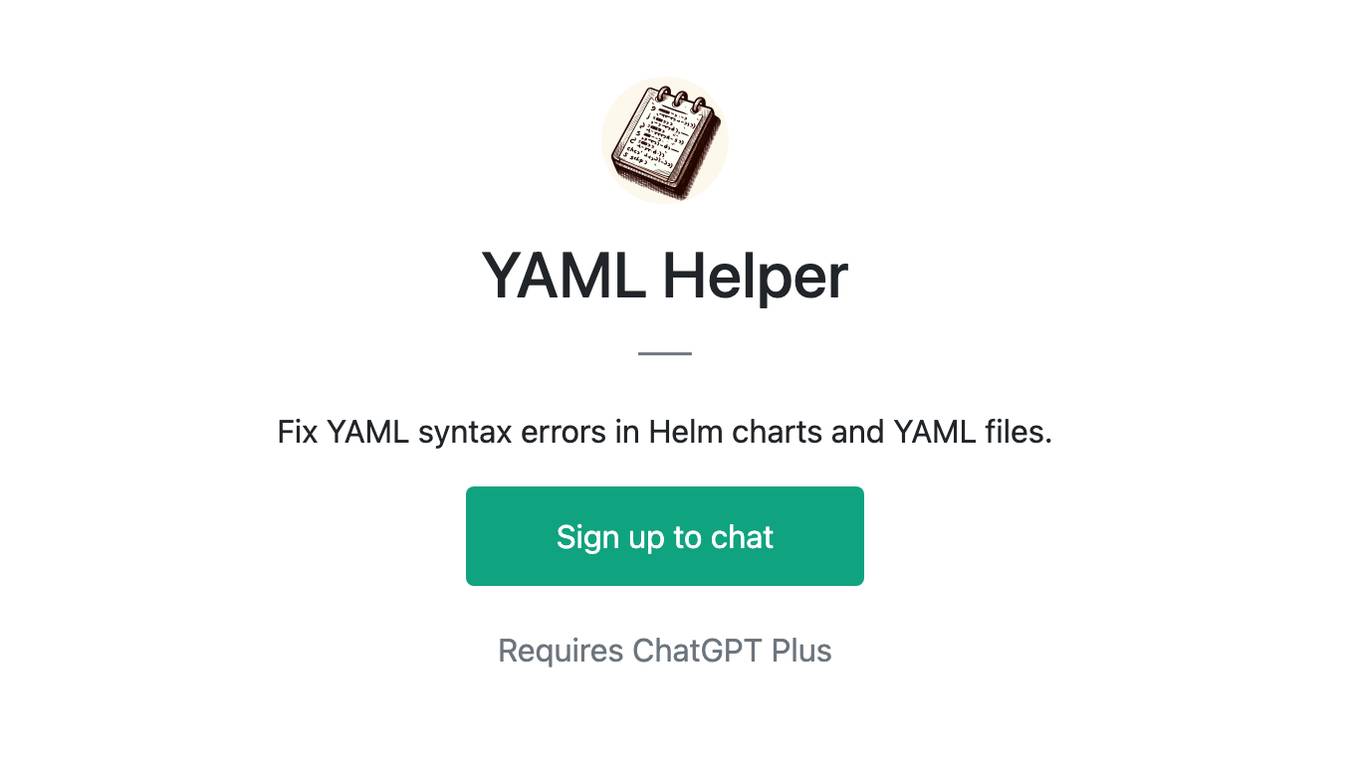Best AI tools for< Kubernetes Administrator >
Infographic
18 - AI tool Sites
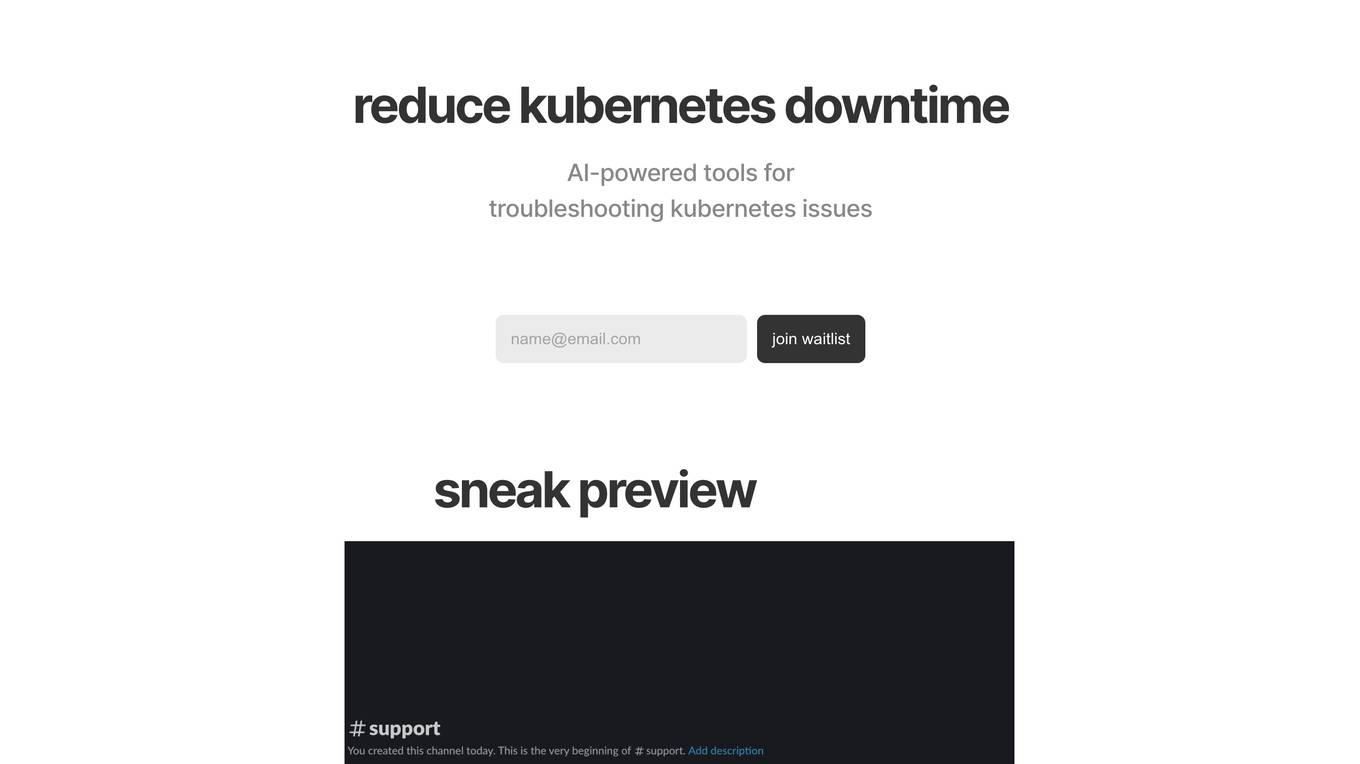
KubeHelper
KubeHelper is an AI-powered tool designed to reduce Kubernetes downtime by providing troubleshooting solutions and command searches. It seamlessly integrates with Slack, allowing users to interact with their Kubernetes cluster in plain English without the need to remember complex commands. With features like troubleshooting steps, command search, infrastructure management, scaling capabilities, and service disruption detection, KubeHelper aims to simplify Kubernetes operations and enhance system reliability.
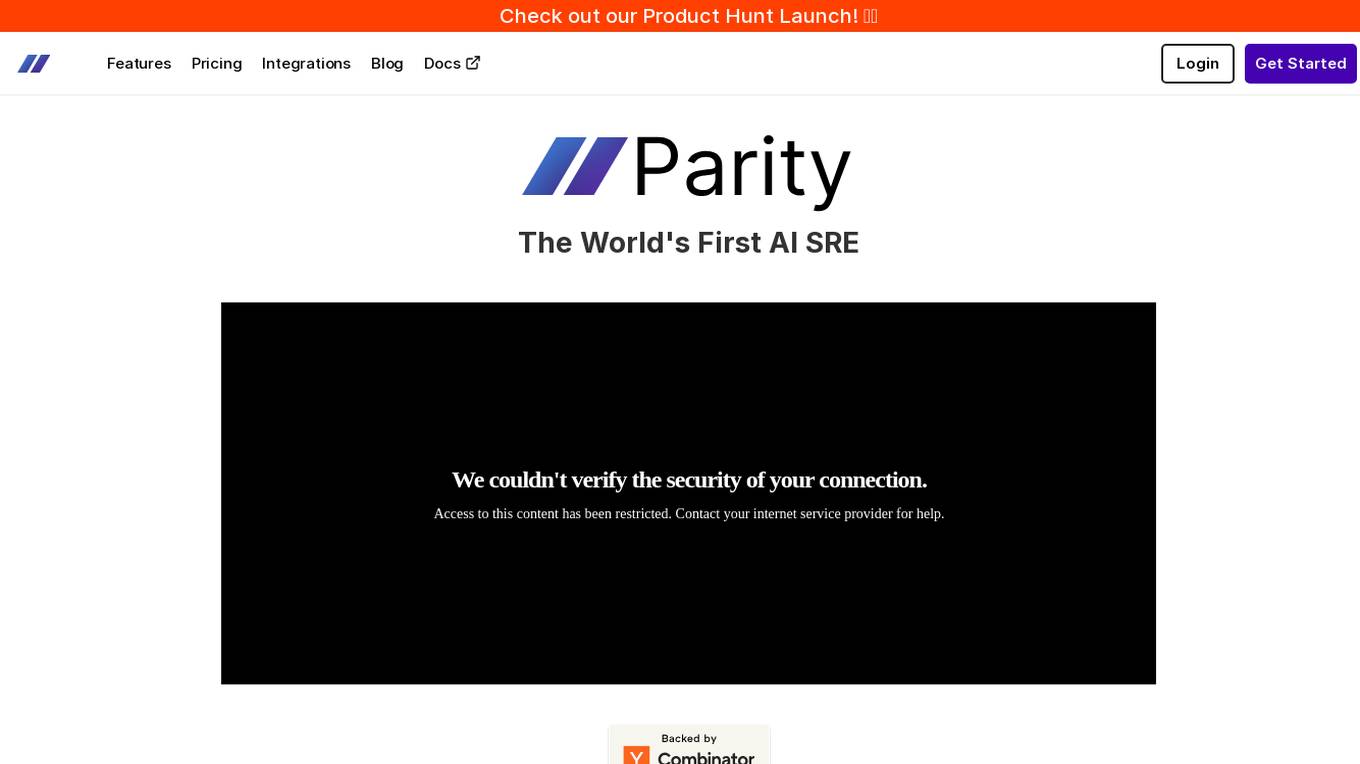
Parity
Parity is the world's first AI SRE tool designed to assist on-call engineers working with Kubernetes. It acts as the first line of defense by conducting investigations, determining root causes, and suggesting remediation before the engineer even opens their laptop. With features like Root Cause Analysis in Seconds, Intelligent Runbook Execution, and the ability to chat directly with the cluster, Parity streamlines incident response and enhances operational efficiency.
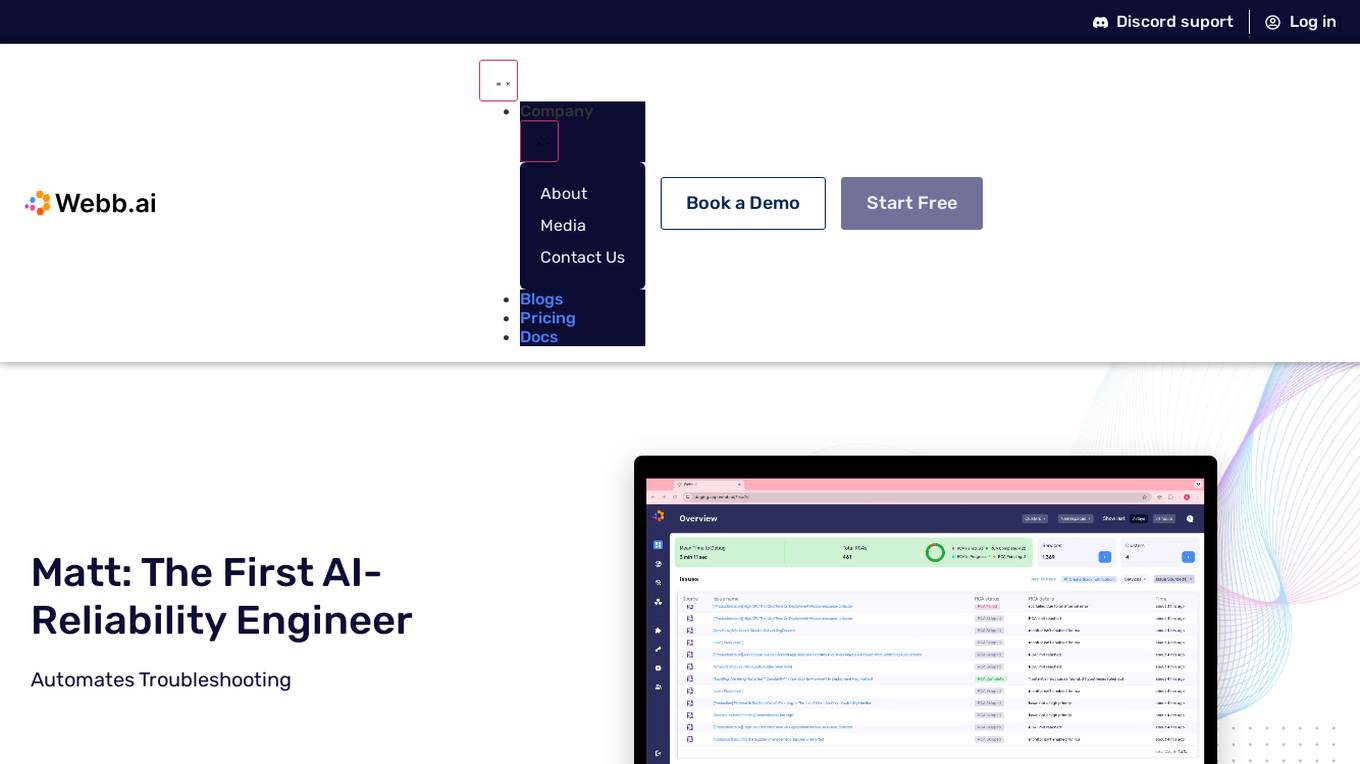
Webb.ai
Webb.ai is an AI-powered platform that offers automated troubleshooting for Kubernetes. It is designed to assist users in identifying and resolving issues within their Kubernetes environment efficiently. By leveraging AI technology, Webb.ai provides insights and recommendations to streamline the troubleshooting process, ultimately improving system reliability and performance. The platform is user-friendly and caters to both beginners and experienced users in the field of Kubernetes management.
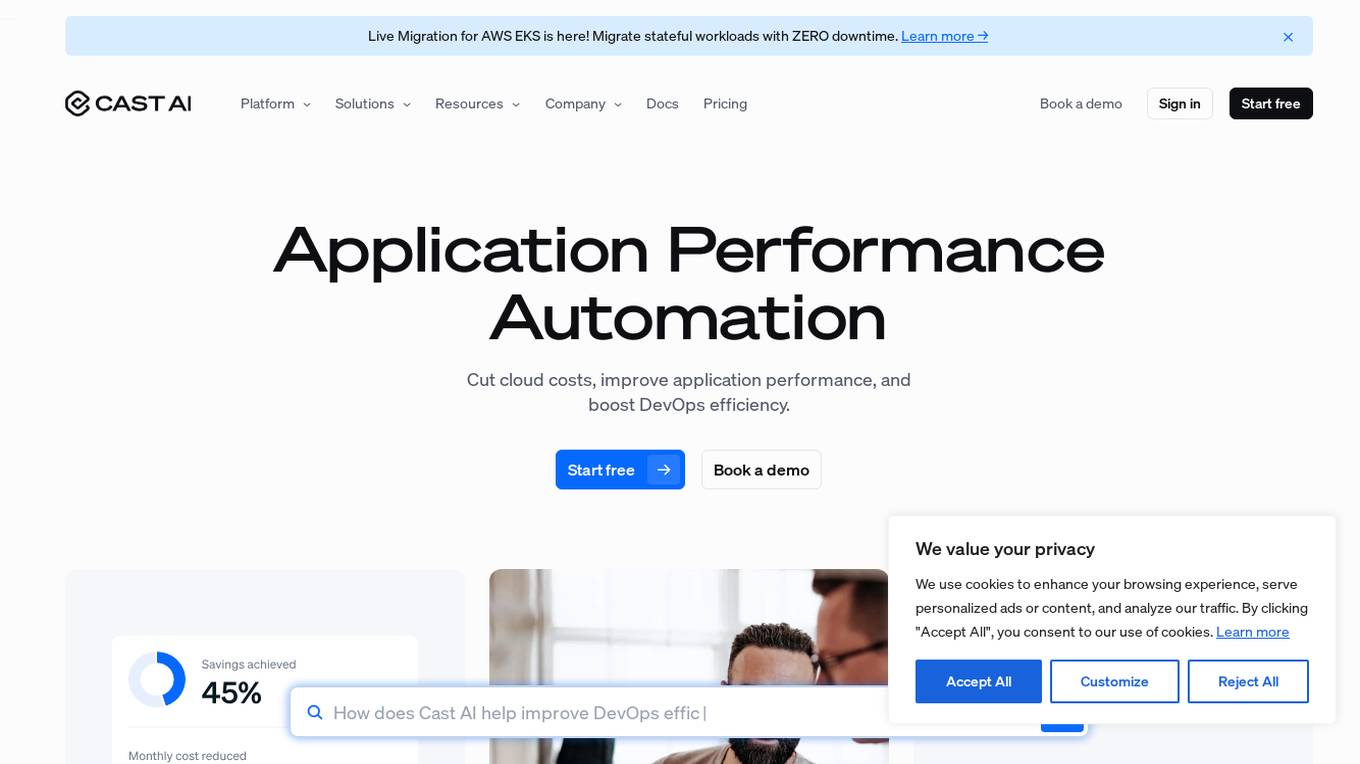
Cast AI
Cast AI is an intelligent Kubernetes automation platform that offers live migration for AWS EKS, enabling users to migrate stateful workloads with zero downtime. The platform provides application performance automation by automating and optimizing the entire application stack, including Kubernetes cluster optimization, security, workload optimization, LLM optimization for AIOps, cost monitoring, and database optimization. Cast AI integrates with various cloud services and tools, offering solutions for migration of stateful workloads, inference at scale, and cutting AI costs without sacrificing scale. The platform helps users improve performance, reduce costs, and boost productivity through end-to-end application performance automation.
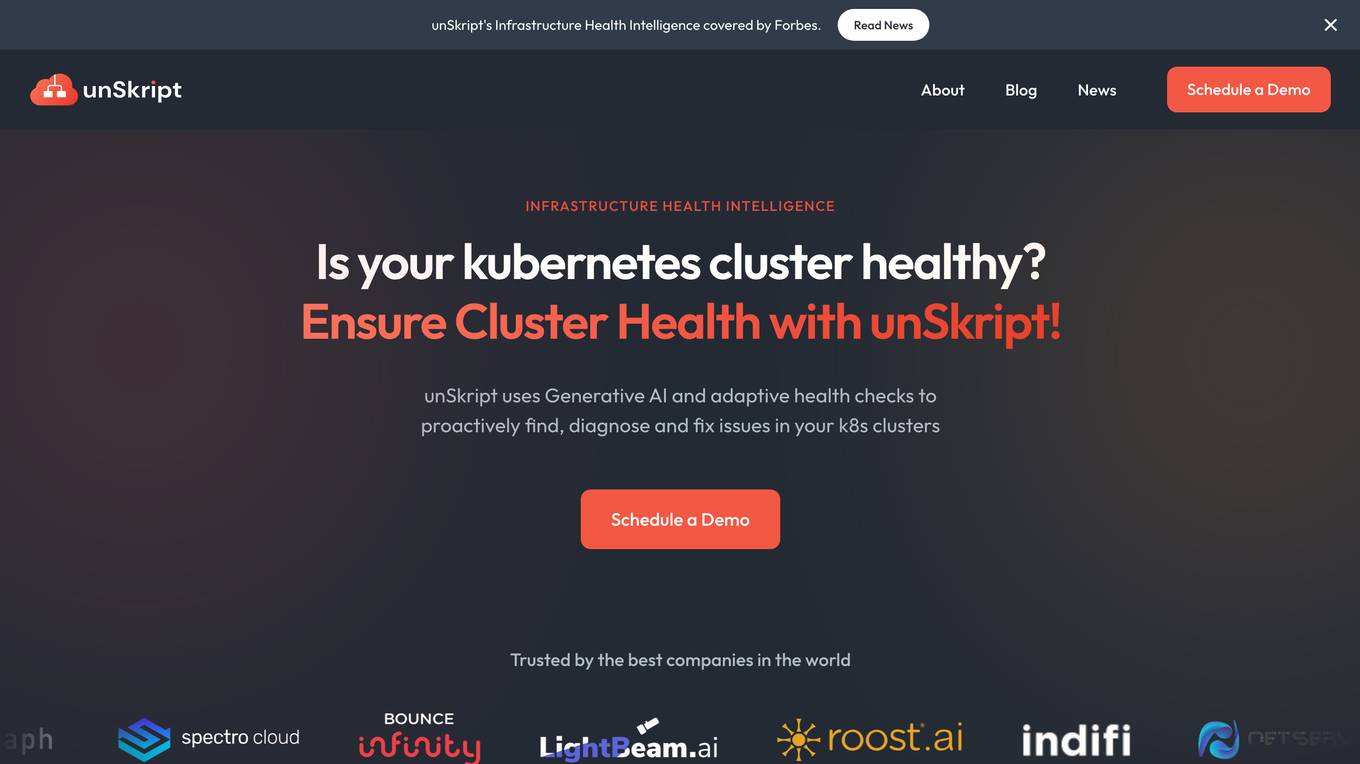
unSkript
unSkript is an Agentic Gen AI platform designed for IT support, offering proactive health checks, issue diagnosis, and resolution. It leverages AI to identify and resolve customer issues before they escalate, reducing MTTR, increasing first-call resolution rates, and decreasing ticket resolution time. The platform uses Agentic AI for automated RCA, Generative AI for remediation, and continuously learns from historical fixes to improve performance over time.
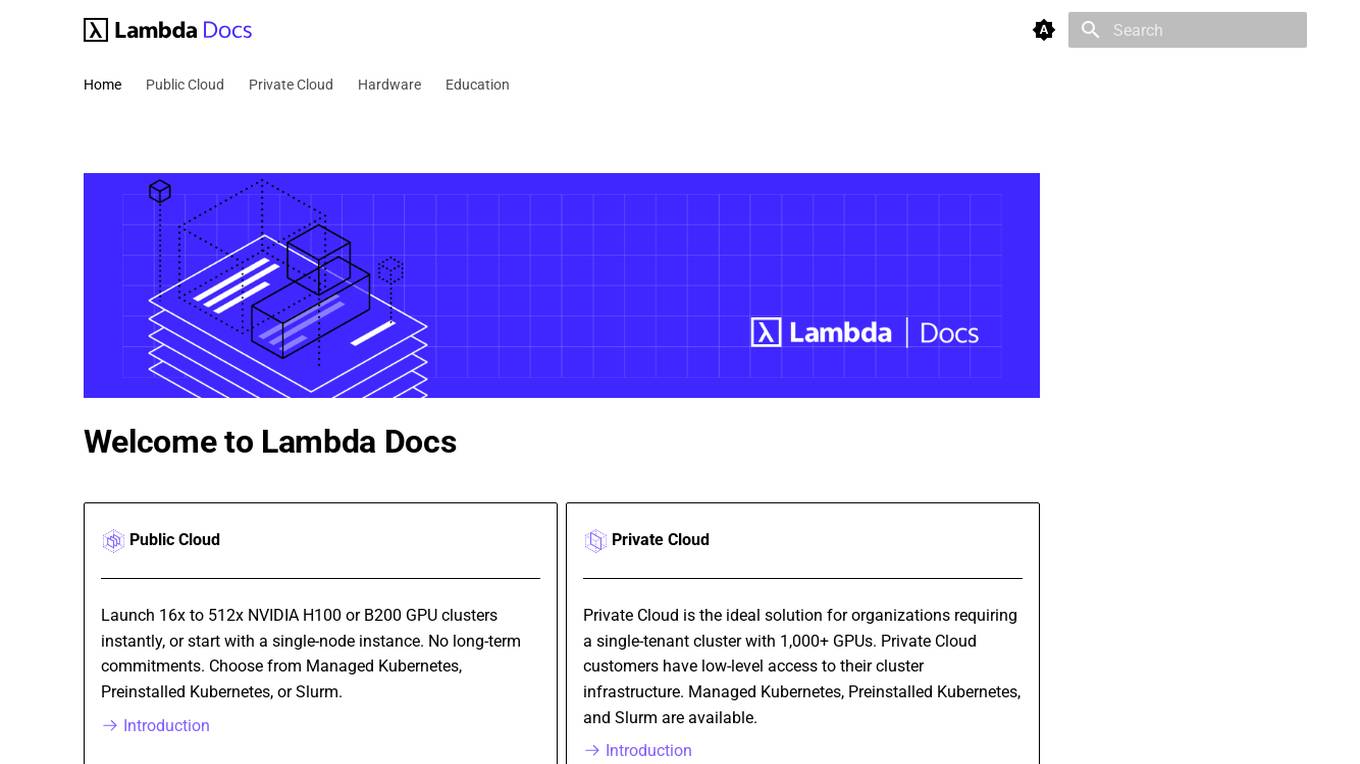
Lambda Docs
Lambda Docs is an AI tool that provides cloud and hardware solutions for individuals, teams, and organizations. It offers services such as Managed Kubernetes, Preinstalled Kubernetes, Slurm, and access to GPU clusters. The platform also provides educational resources and tutorials for machine learning engineers and researchers to fine-tune models and deploy AI solutions.
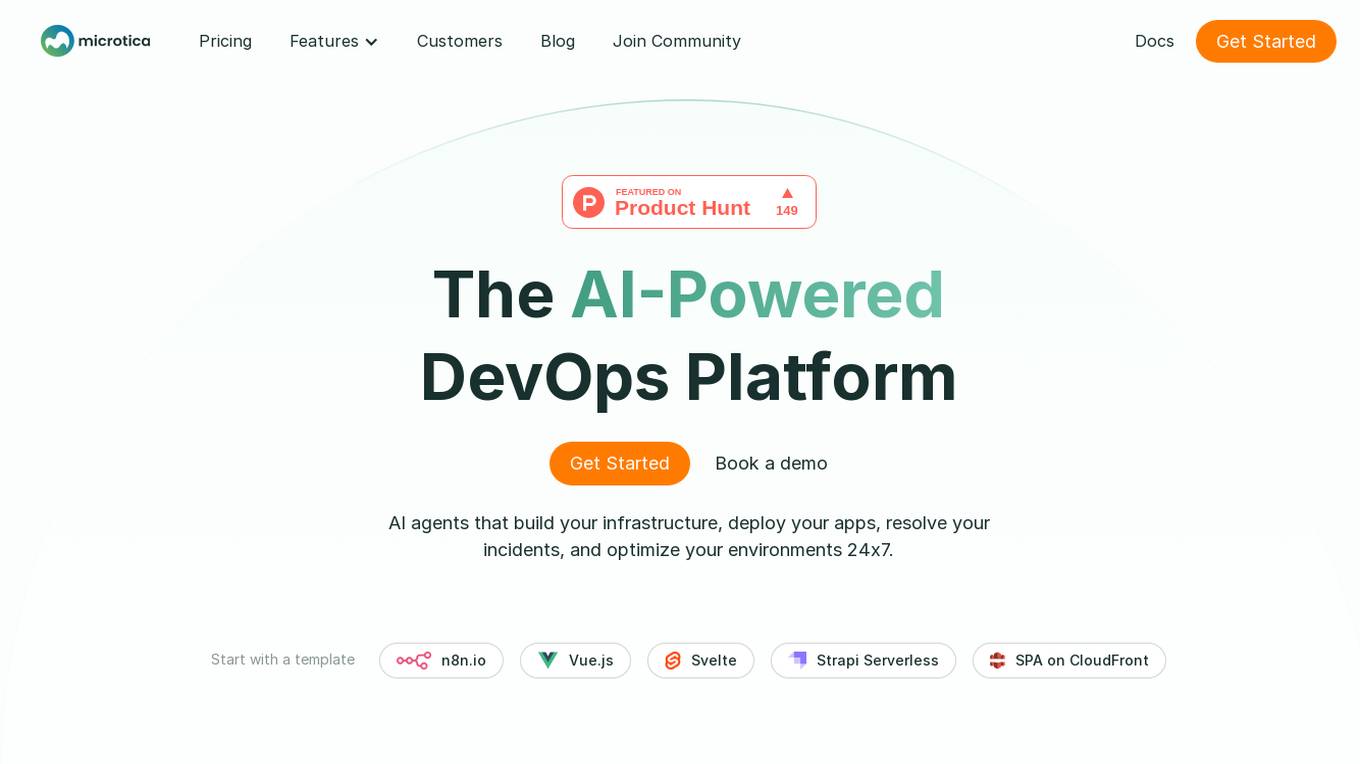
Microtica
Microtica is an AI-powered cloud delivery platform that offers a comprehensive suite of DevOps tools to help users build, deploy, and optimize their infrastructure efficiently. With features like AI Incident Investigator, AI Infrastructure Builder, Kubernetes deployment simplification, alert monitoring, pipeline automation, and cloud monitoring, Microtica aims to streamline the development and management processes for DevOps teams. The platform provides real-time insights, cost optimization suggestions, and guided deployments, making it a valuable tool for businesses looking to enhance their cloud infrastructure operations.
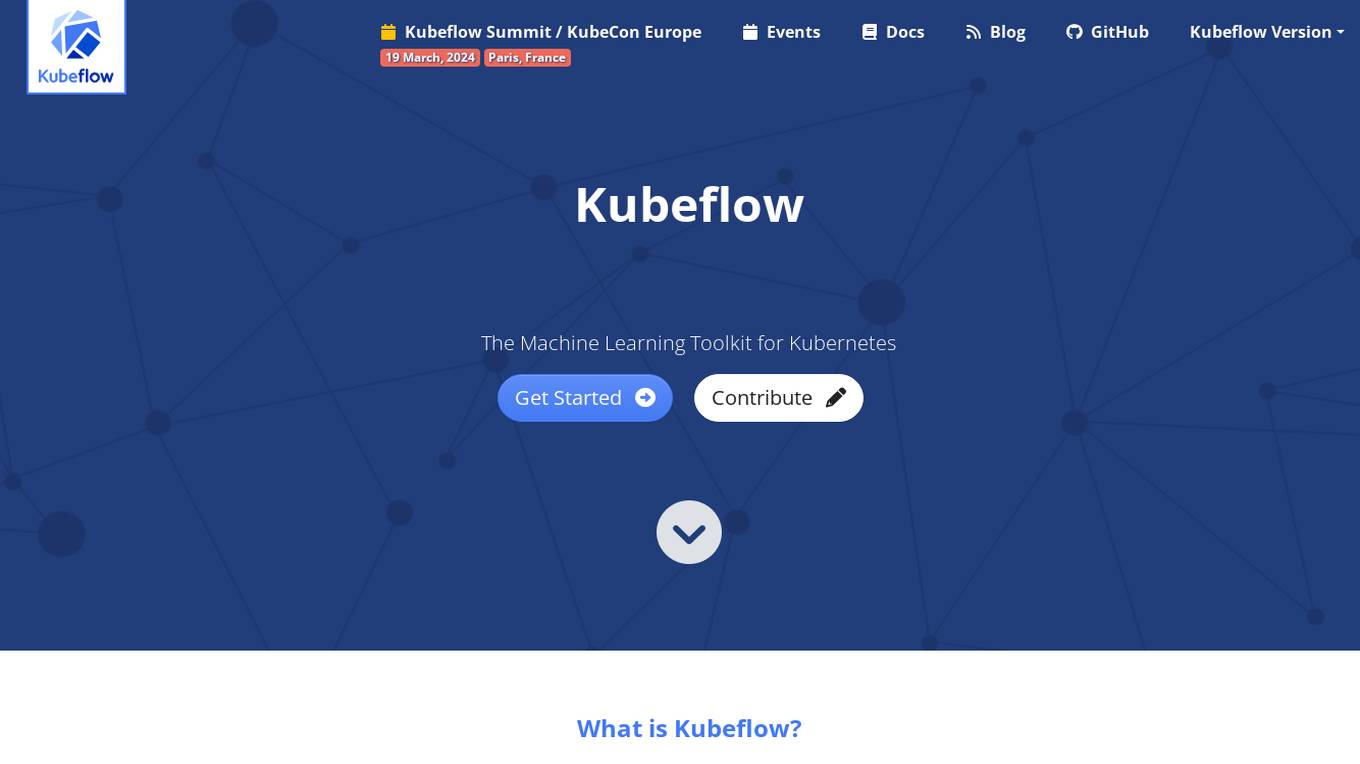
Kubeflow
Kubeflow is an open-source machine learning (ML) toolkit that makes deploying ML workflows on Kubernetes simple, portable, and scalable. It provides a unified interface for model training, serving, and hyperparameter tuning, and supports a variety of popular ML frameworks including PyTorch, TensorFlow, and XGBoost. Kubeflow is designed to be used with Kubernetes, a container orchestration system that automates the deployment, management, and scaling of containerized applications.
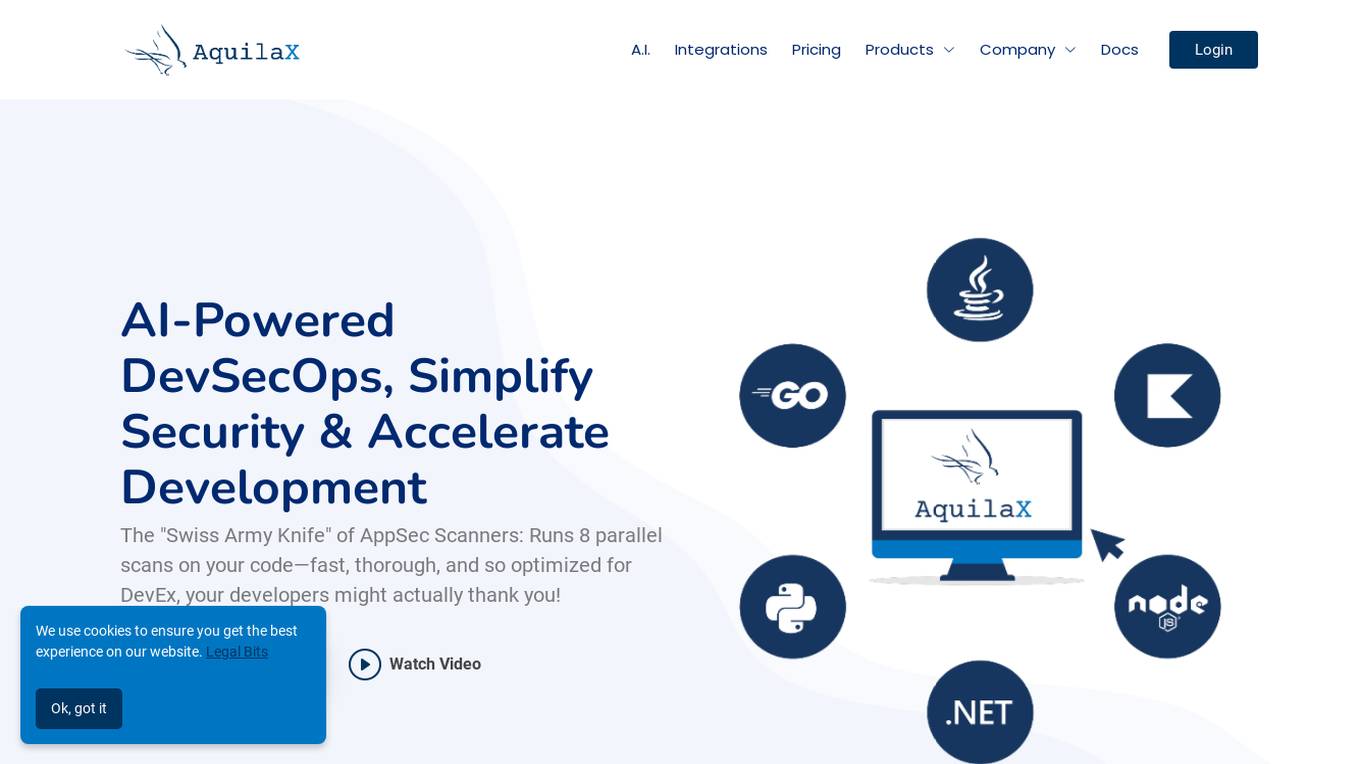
AquilaX
AquilaX is an AI-powered DevSecOps platform that simplifies security and accelerates development processes. It offers a comprehensive suite of security scanning tools, including secret identification, PII scanning, SAST, container scanning, and more. AquilaX is designed to integrate seamlessly into the development workflow, providing fast and accurate results by leveraging AI models trained on extensive datasets. The platform prioritizes developer experience by eliminating noise and false positives, making it a go-to choice for modern Secure-SDLC teams worldwide.
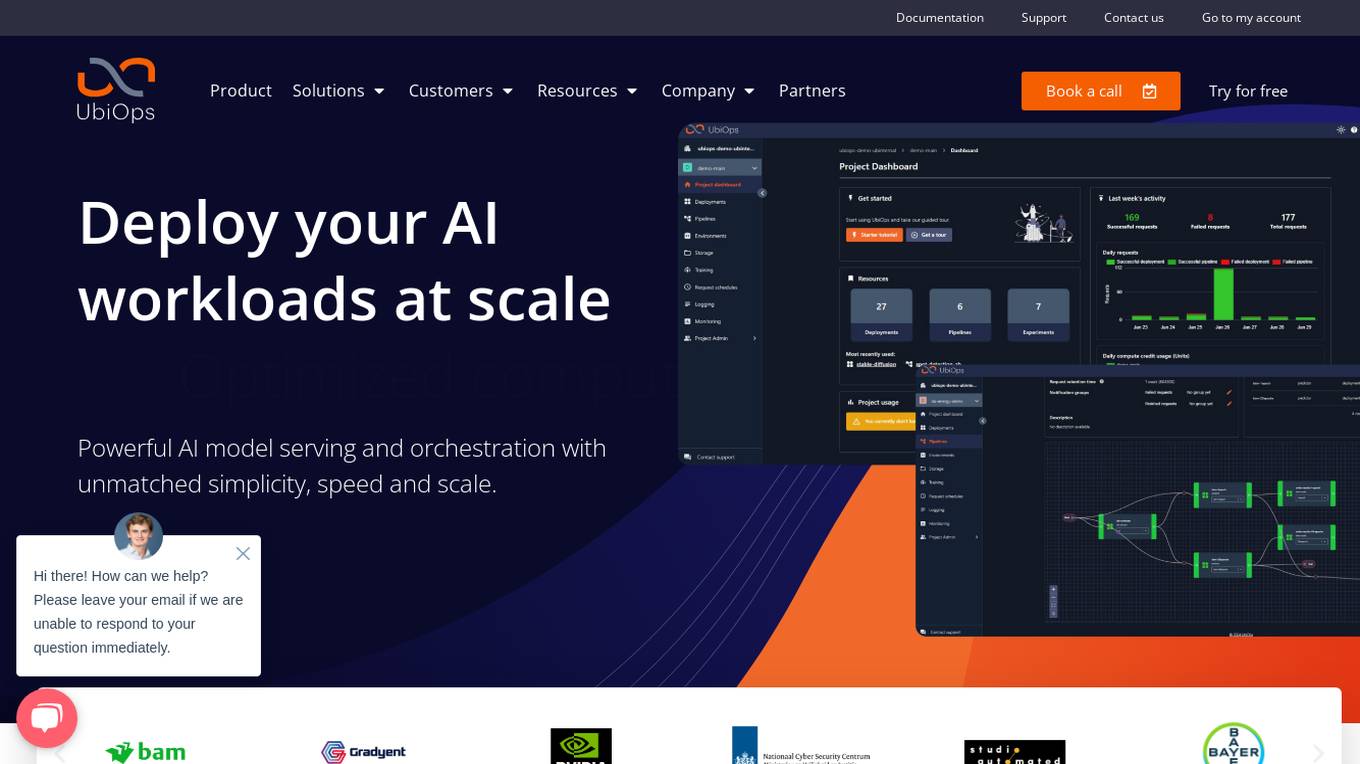
UbiOps
UbiOps is an AI infrastructure platform that helps teams quickly run their AI & ML workloads as reliable and secure microservices. It offers powerful AI model serving and orchestration with unmatched simplicity, speed, and scale. UbiOps allows users to deploy models and functions in minutes, manage AI workloads from a single control plane, integrate easily with tools like PyTorch and TensorFlow, and ensure security and compliance by design. The platform supports hybrid and multi-cloud workload orchestration, rapid adaptive scaling, and modular applications with unique workflow management system.
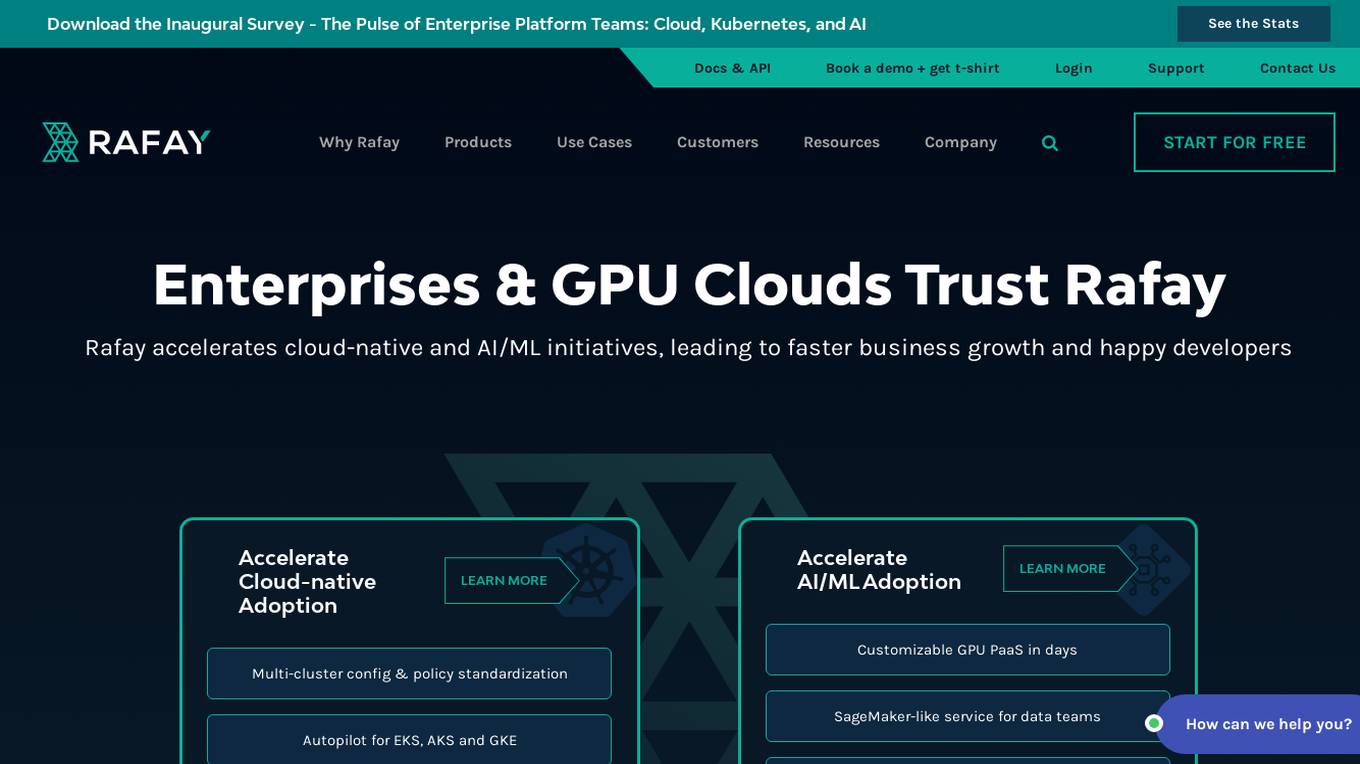
Rafay
Rafay is an AI-powered platform that accelerates cloud-native and AI/ML initiatives for enterprises. It provides automation for Kubernetes clusters, cloud cost optimization, and AI workbenches as a service. Rafay enables platform teams to focus on innovation by automating self-service cloud infrastructure workflows.
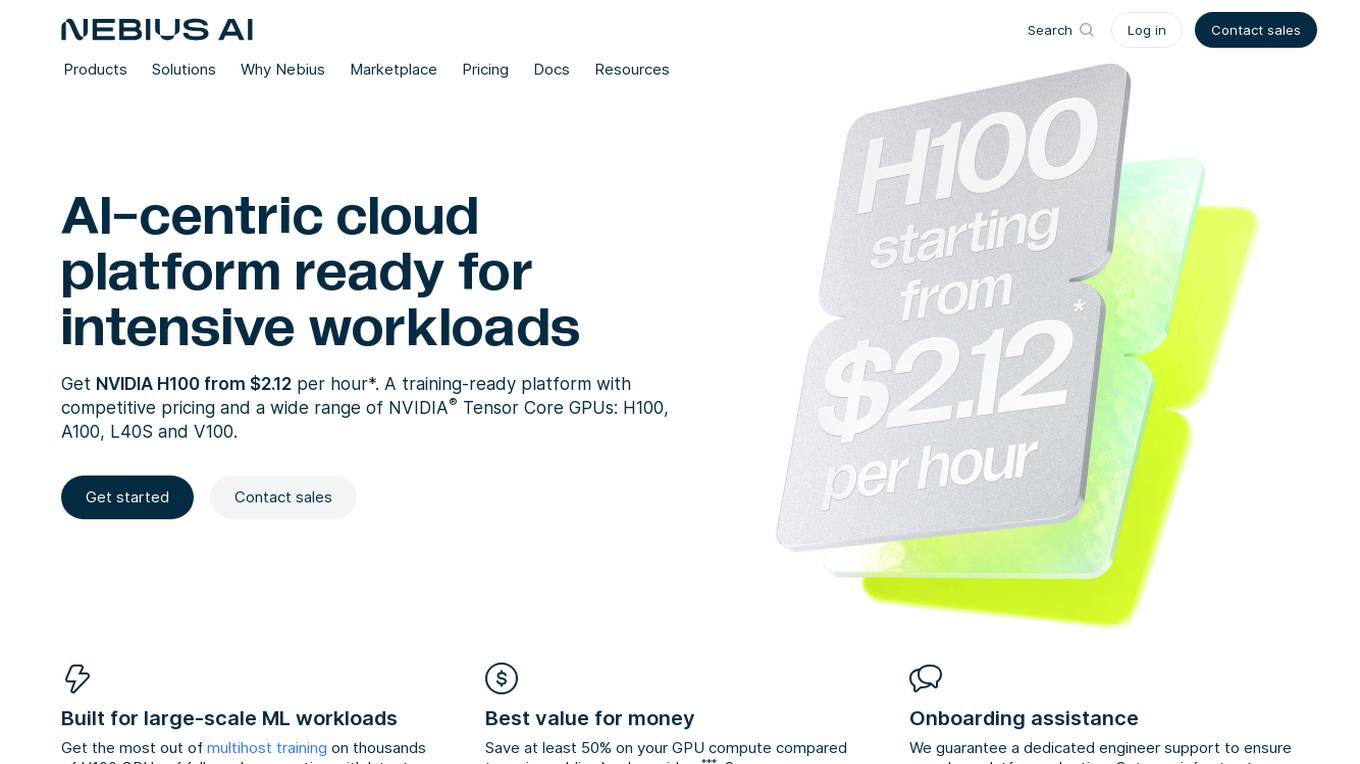
Nebius AI
Nebius AI is an AI-centric cloud platform designed to handle intensive workloads efficiently. It offers a range of advanced features to support various AI applications and projects. The platform ensures high performance and security for users, enabling them to leverage AI technology effectively in their work. With Nebius AI, users can access cutting-edge AI tools and resources to enhance their projects and streamline their workflows.
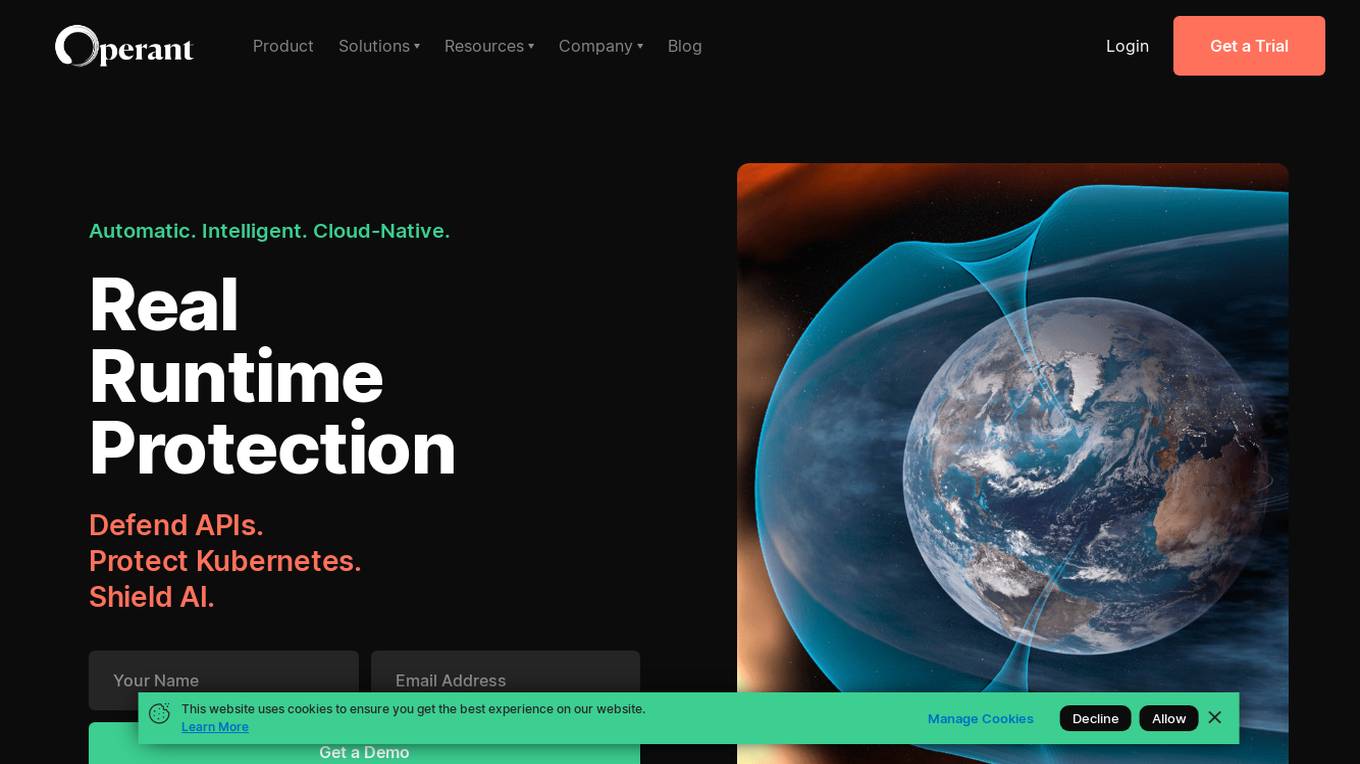
Operant
Operant is a cloud-native runtime protection platform that offers instant visibility and control from infrastructure to APIs. It provides AI security shield for applications, API threat protection, Kubernetes security, automatic microsegmentation, and DevSecOps solutions. Operant helps defend APIs, protect Kubernetes, and shield AI applications by detecting and blocking various attacks in real-time. It simplifies security for cloud-native environments with zero instrumentation, application code changes, or integrations.

Mystic.ai
Mystic.ai is an AI tool designed to deploy and scale Machine Learning models with ease. It offers a fully managed Kubernetes platform that runs in your own cloud, allowing users to deploy ML models in their own Azure/AWS/GCP account or in a shared GPU cluster. Mystic.ai provides cost optimizations, fast inference, simpler developer experience, and performance optimizations to ensure high-performance AI model serving. With features like pay-as-you-go API, cloud integration with AWS/Azure/GCP, and a beautiful dashboard, Mystic.ai simplifies the deployment and management of ML models for data scientists and AI engineers.
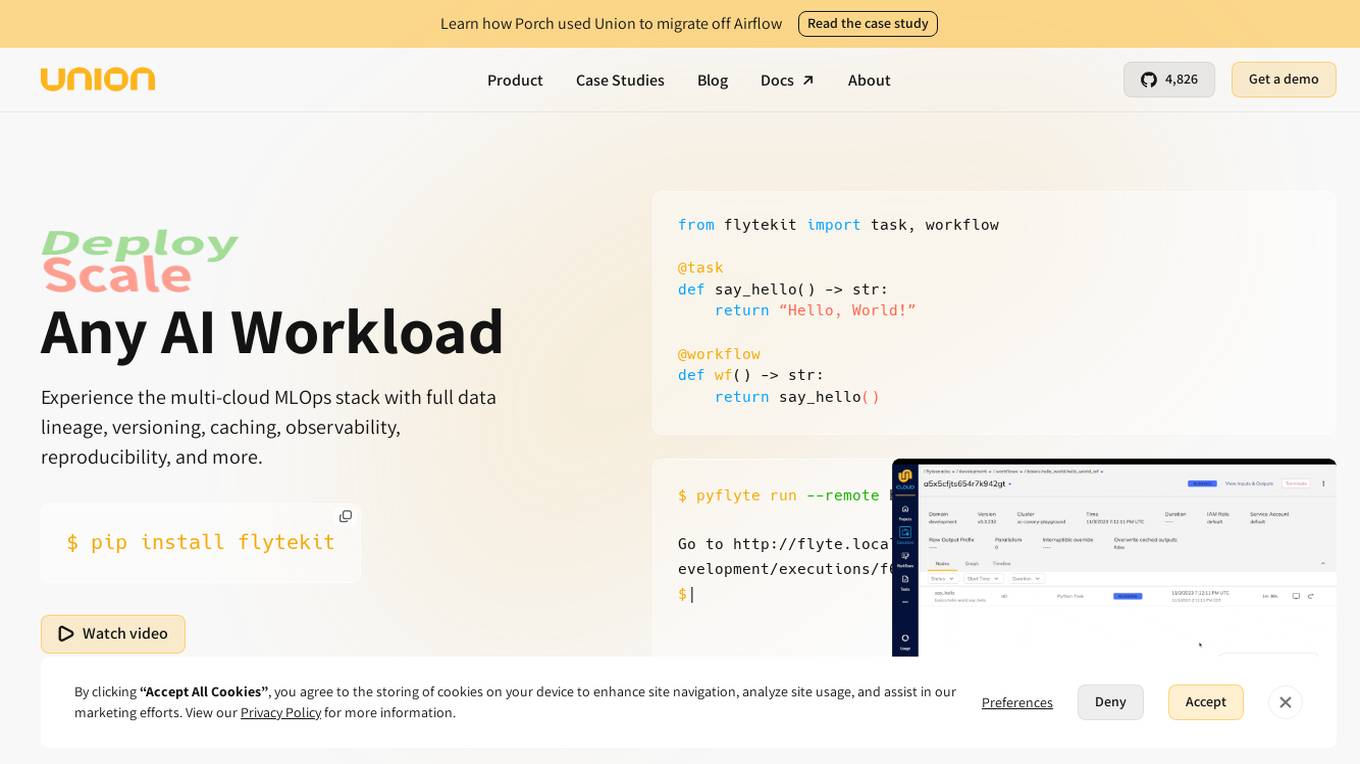
Union.ai
Union.ai is an infrastructure platform designed for AI, ML, and data workloads. It offers a scalable MLOps platform that optimizes resources, reduces costs, and fosters collaboration among team members. Union.ai provides features such as declarative infrastructure, data lineage tracking, accelerated datasets, and more to streamline AI orchestration on Kubernetes. It aims to simplify the management of AI, ML, and data workflows in production environments by addressing complexities and offering cost-effective strategies.
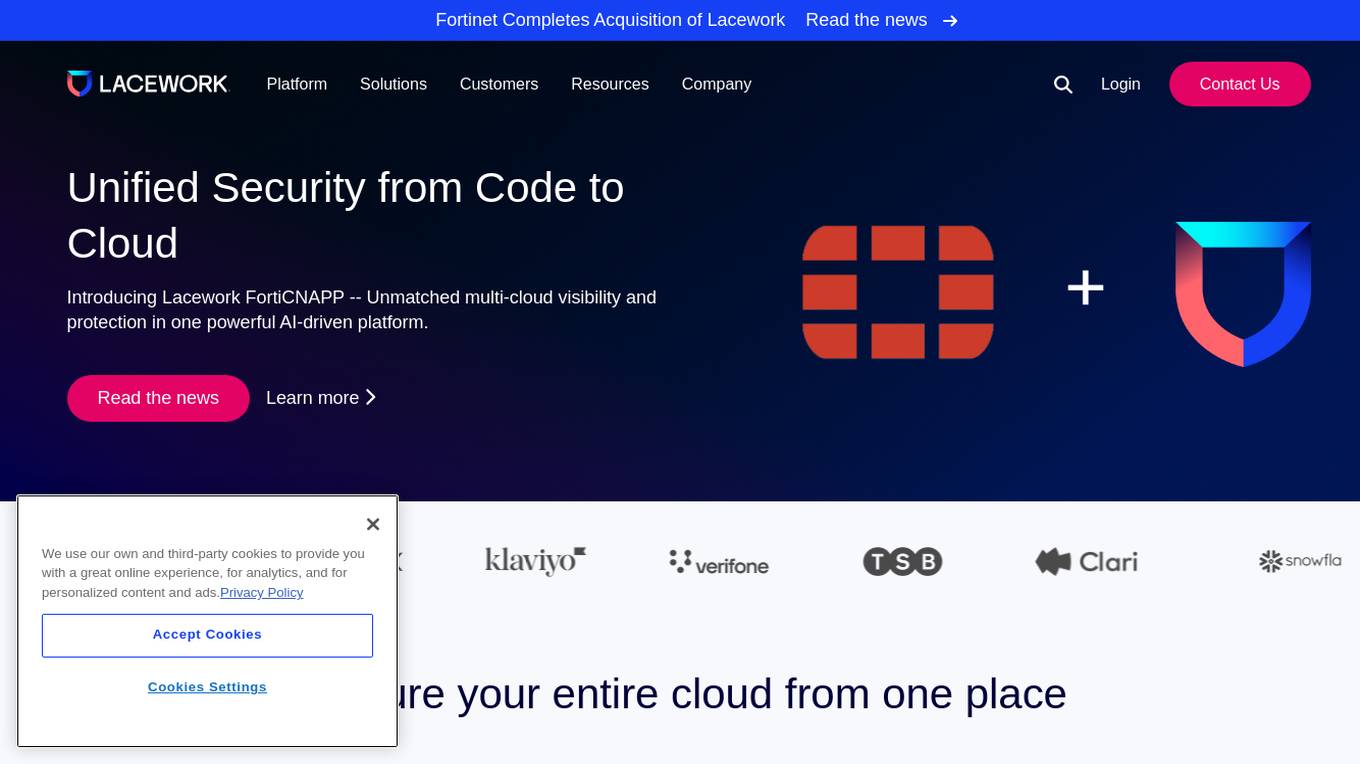
Lacework
Lacework is a cloud security platform that provides comprehensive security solutions for DevOps, Containers, and Cloud Environments. It offers features such as Code Security, Workload Protection, Identities and Entitlements management, Posture Management, Kubernetes Security, Data Posture Management, Infrastructure as Code security, Software Composition Analysis, Application Security Testing, Edge Security, and Platform Overview. Lacework empowers users to secure their entire cloud infrastructure, prioritize risks, protect workloads, and stay compliant by leveraging AI-driven technologies and behavior-based threat detection. The platform helps automate compliance reporting, fix vulnerabilities, and reduce alerts, ultimately enhancing cloud security and operational efficiency.
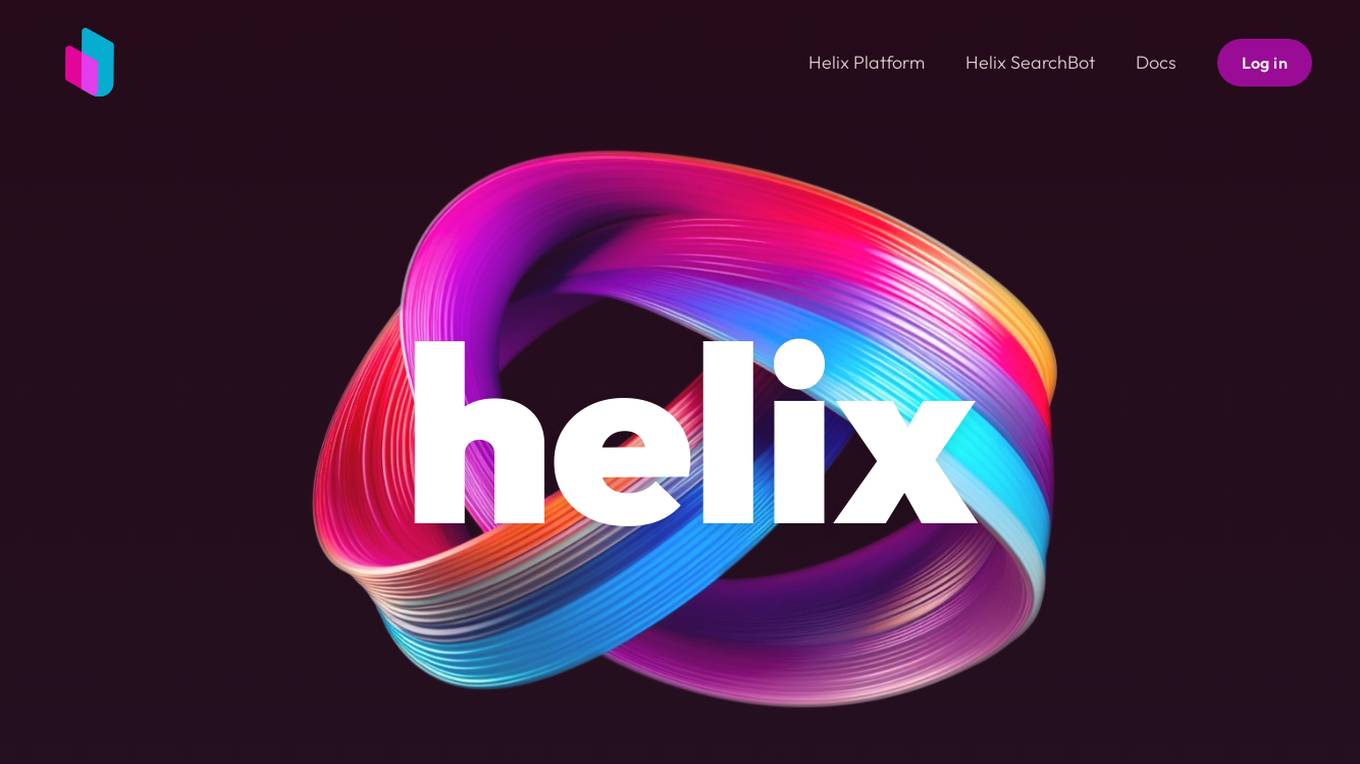
Helix AI
Helix AI is a private GenAI platform that enables users to build AI applications using open source models. The platform offers tools for RAG (Retrieval-Augmented Generation) and fine-tuning, allowing deployment on-premises or in a Virtual Private Cloud (VPC). Users can access curated models, utilize Helix API tools to connect internal and external APIs, embed Helix Assistants into websites/apps for chatbot functionality, write AI application logic in natural language, and benefit from the innovative RAG system for Q&A generation. Additionally, users can fine-tune models for domain-specific needs and deploy securely on Kubernetes or Docker in any cloud environment. Helix Cloud offers free and premium tiers with GPU priority, catering to individuals, students, educators, and companies of varying sizes.
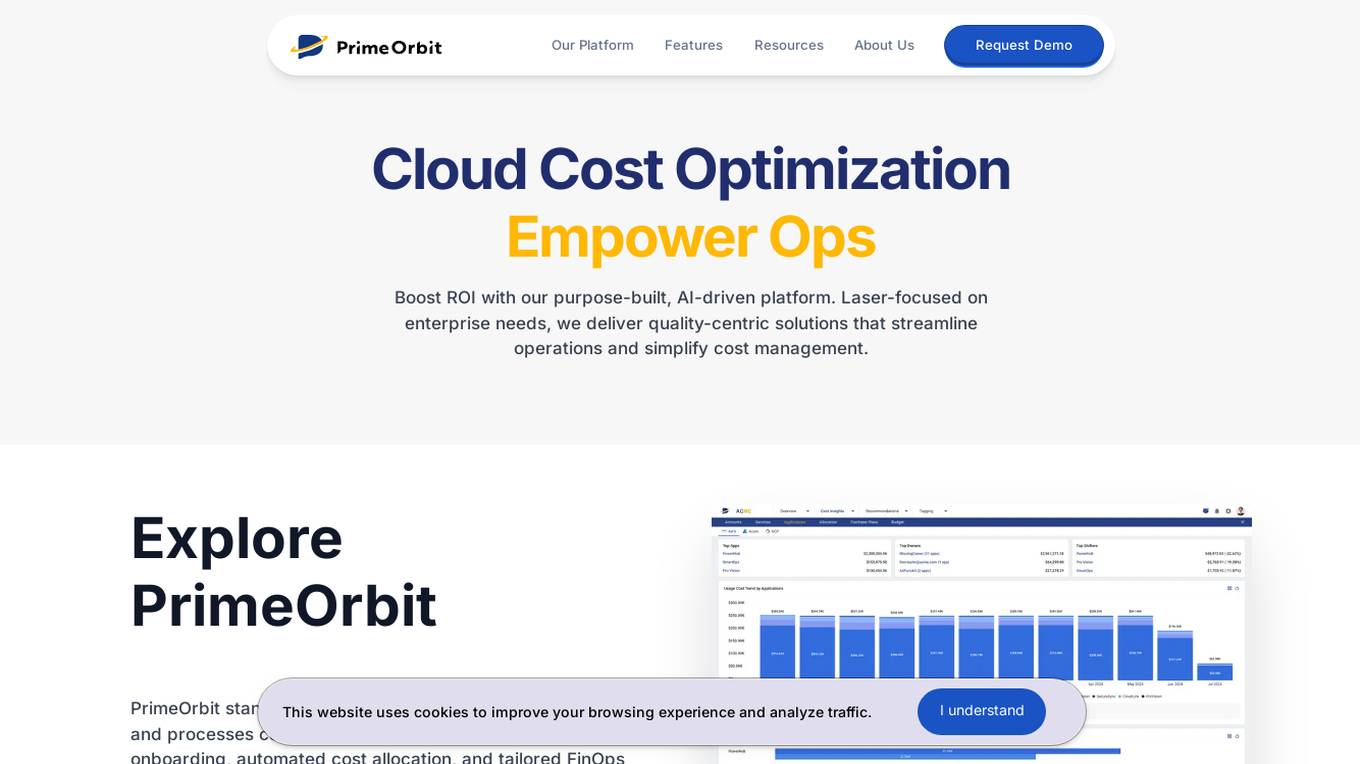
PrimeOrbit
PrimeOrbit is an AI-driven cloud cost optimization platform designed to empower operations and boost ROI for enterprises. The platform focuses on streamlining operations and simplifying cost management by delivering quality-centric solutions. It offers AI-driven optimization recommendations, automated cost allocation, and tailored FinOps for optimal efficiency and control. PrimeOrbit stands out by providing user-centric approach, superior AI recommendations, customization, and flexible enterprise workflow. It supports major cloud providers including AWS, Azure, and GCP, with full support for GCP and Kubernetes coming soon. The platform ensures complete cost allocation across cloud resources, empowering decision-makers to optimize cloud spending efficiently and effectively.
0 - Open Source Tools
9 - OpenAI Gpts
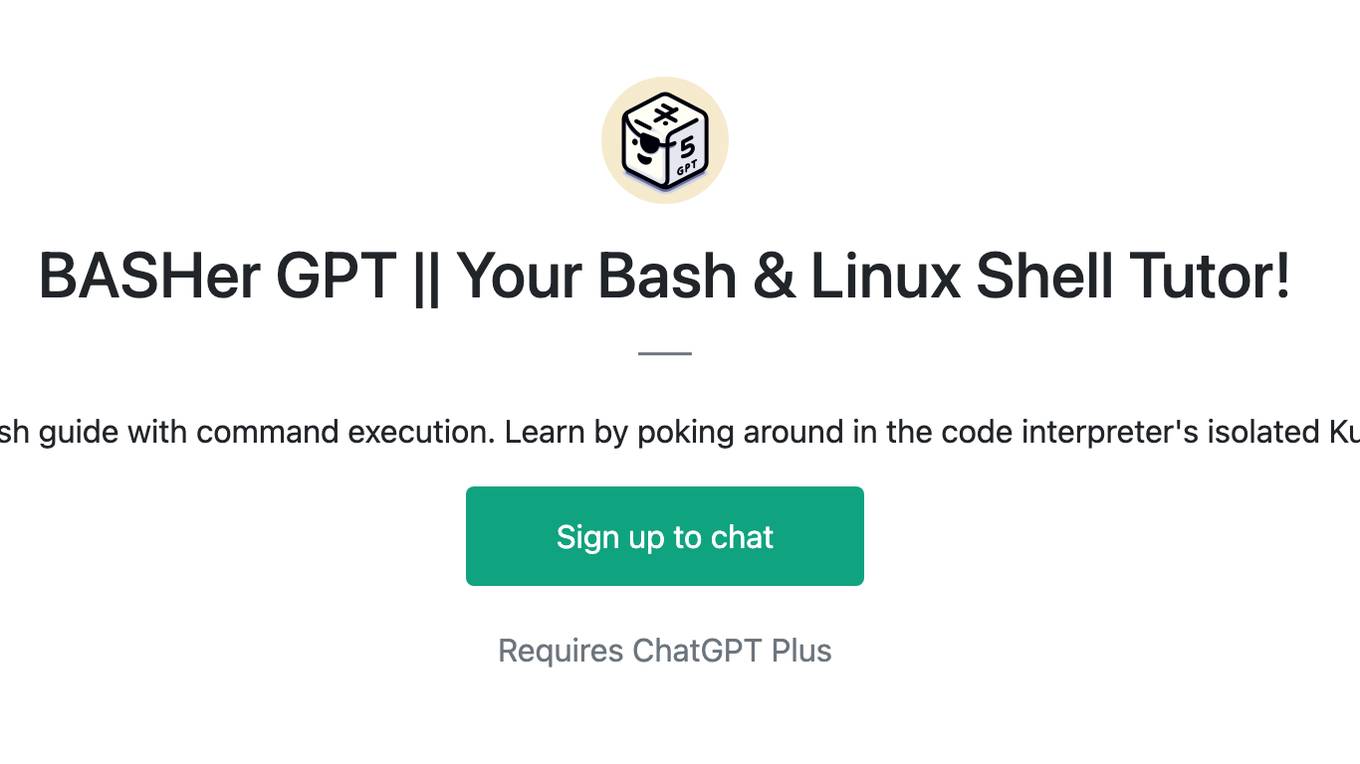
BASHer GPT || Your Bash & Linux Shell Tutor!
Adaptive and clear Bash guide with command execution. Learn by poking around in the code interpreter's isolated Kubernetes container!

Istio Advisor Plus
Rich in Istio knowledge, with a focus on configurations, troubleshooting, and bug reporting.
